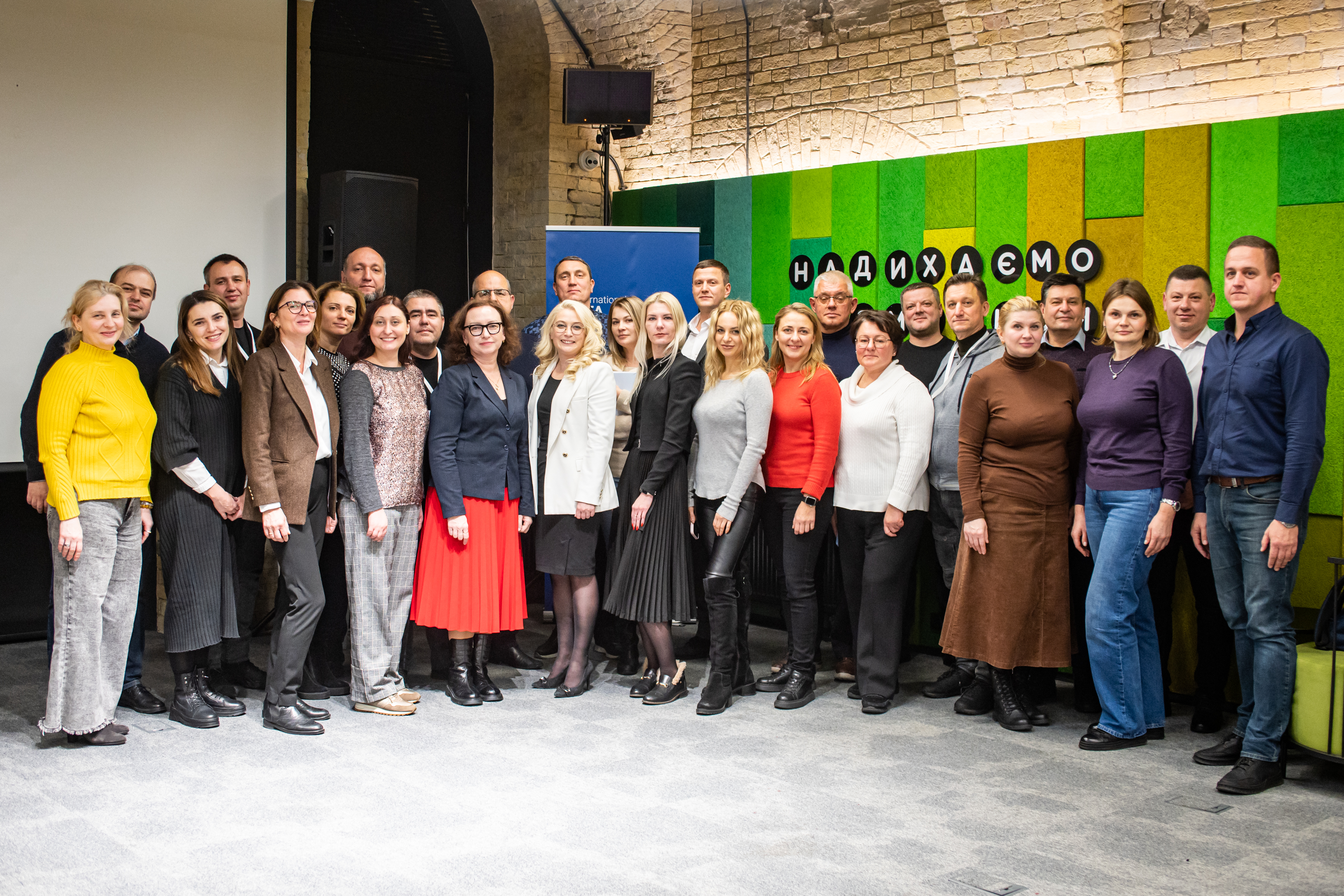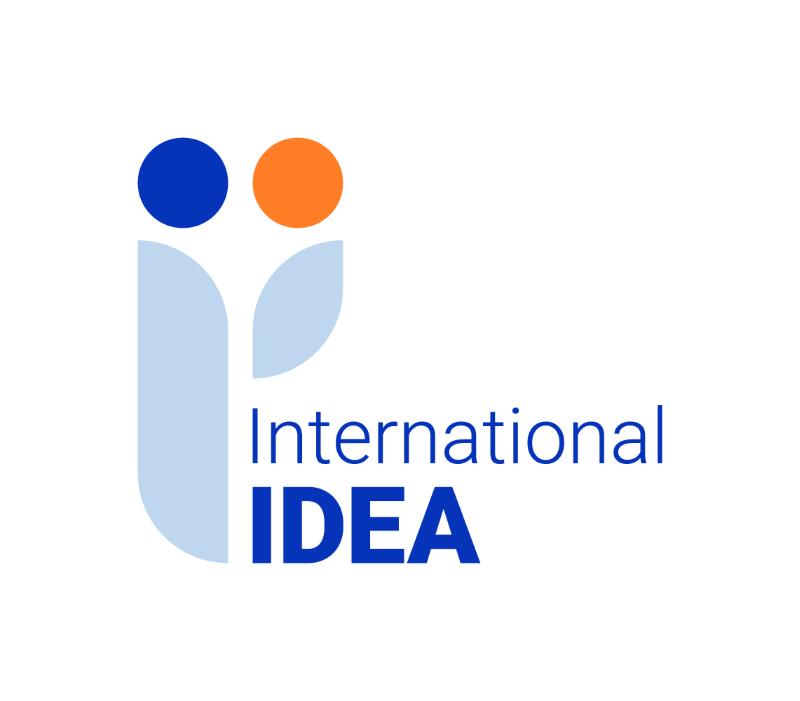International IDEA supports the European Commission in unpacking the “Artificial Intelligence and democratic development” suitcase
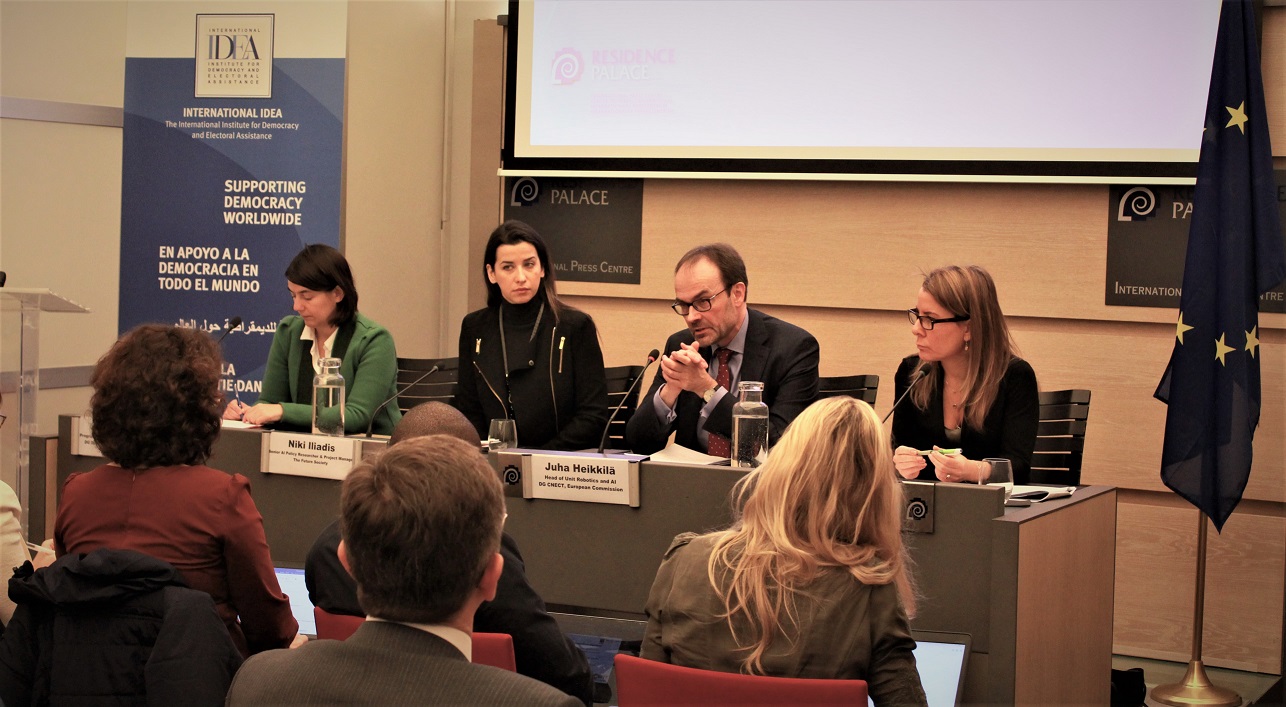
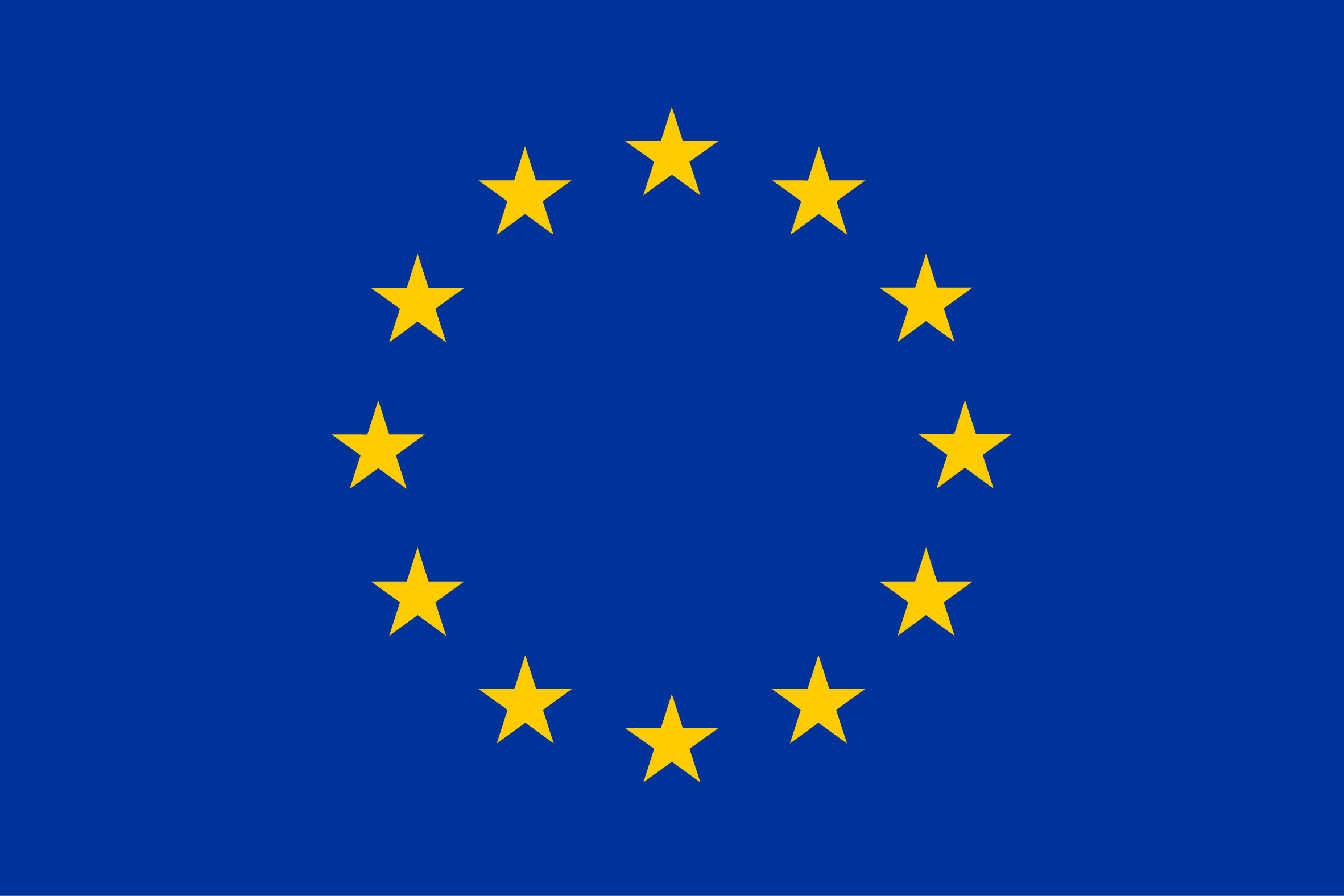
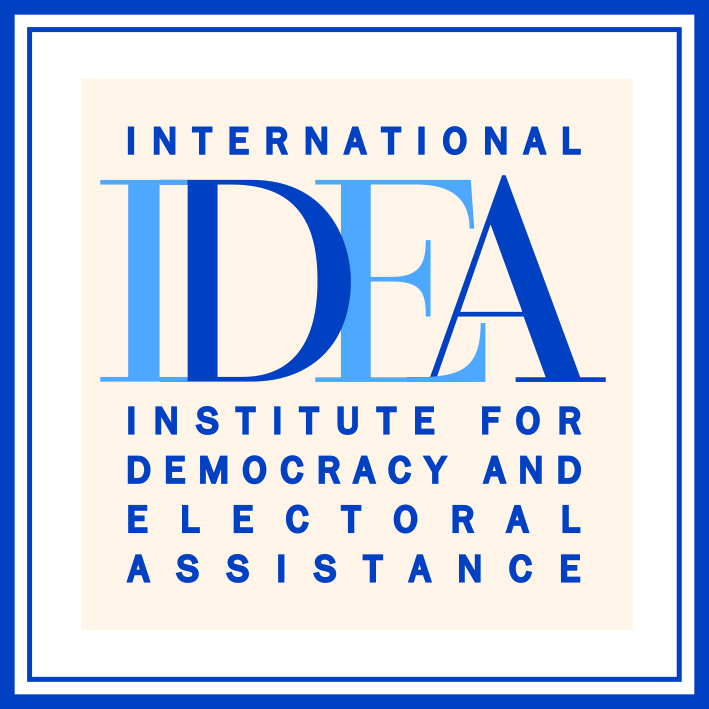
Roundtable report: Artificial Intelligence: Mapping priority areas for EU assistance to democratic development
Brussels, 11 December 2019
Artificial intelligence (AI) has become increasingly relevant for societies because of the considerable effects enabled by the rapidly increasing availability of data and computing power. In the field of democratic governance, AI can be applied to increase the effectiveness and efficiency of democratic institutions and processes, but its use can also have disruptive effects on democracy, as is demonstrated by incidents such as Cambridge Analytica, deep fakes in election campaigning or AI-inspired political surveillance.
While AI is rapidly spreading worldwide, the inclusion of AI in policy-making, especially for development cooperation and democracy support, is still in its infancy. It is however important to examine in tandem how it may disrupt democratic rights and create democratic opportunities. To take a closer look at challenges and opportunities, International IDEA and the European Commission’s Directorate-General for International Cooperation (DG DEVCO) jointly organized a roundtable in Brussels on 11 December 2019, launching a discussion on the impact of AI on democracy and AI-sensitive EU policy and programming related to democratic development.
More than 50 participants from EU institutions, universities, think thanks, democracy-support organizations, as well as high tech foundations and start-ups dealing with AI convened to develop a better understanding of the role that AI is playing in democracies and how the EU could harness its potential and mitigate the risks it presents through its development policy and programming.
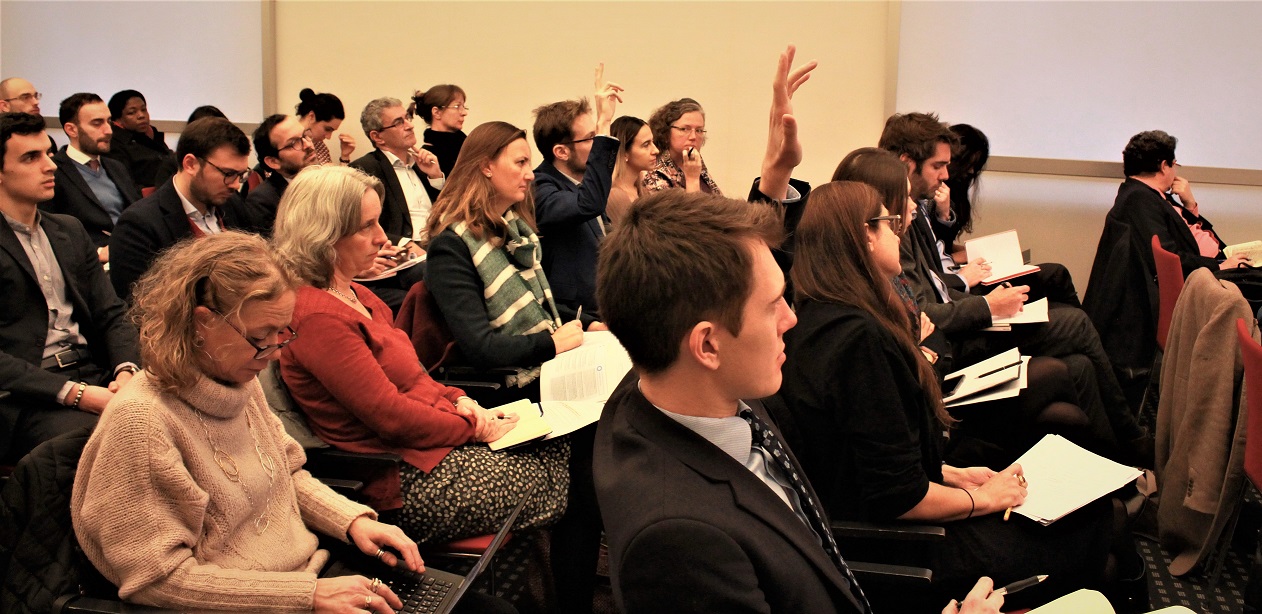
In several working areas, the EU is conducting a comprehensive analysis of a wide range of potential impacts of AI on societies and citizens, enabling it to build on its strengths as a normative power and placing itself at the forefront of AI research and action. Drawing from the EU’s internal regulations and oversight on AI, the roundtable increased understanding of AI aspects related to democratic development and contributed to identifying adequate ways to address these issues worldwide.
In the light of ongoing EU initiatives related to AI, speakers and participants addressed topics such as the ethics of AI, risks it may present to fundamental freedoms through algorithmic bias and surveillance, challenges to political debate through micro targeting, disinformation and bots, as well as opportunities to support effective and accurate election administration.
Speakers highlighted a number of values and principles that could lead EU action on AI and democratic development:
- Protecting individuals must always be a top priority for the EU and therefore there is a need to take a human-centric approach to addressing AI-related challenges at EU level; this includes the need to increase leverage to enforce privacy laws;
- Civil society must understand how AI works to be able to contribute to its democratic oversight; besides promoting AI literacy, public authorities must seek to ensure civic engagement in political decision-making on AI;
- Creating trust through transparency and raising awareness are important elements to maximizing opportunities and minimizing risks related to related to AI and democracy; and
- Multi-stakeholder input and cross-sectoral collaboration is key to addressing many challenges and opportunities related to AI; this could be equally useful in relation to AI and democratic development.
Key takeaways of the discussion could be captured in the following findings, conclusions and ideas for EU action on democratic development:
- EU regulation on data protection can serve as a model for sharing experiences on how to mitigate the disruptive effects of the use of AI in elections in other regions of the world;
- EU action should be targeted both at AI technology itself and at improving understanding of AI and its governance;
- The EU should invest in citizen understanding of AI and spread success stories on the use of AI in democratic development;
- The EU could potentially support countries in balancing legally established access to data with user privacy, corporate interests and adopting norms in this field;
- The EU should invest in the capacity of oversight agencies in emerging democracies, such as data protection agencies;
- Big tech companies should be incentivized to facilitate democratic oversight through enlarging public access to political advertising archives geographically and create user-friendly formats; the EU could support partner countries in building legislation that is inclusive of the opportunities provided by these archives, including analyzing advertising data and finding suspicious patterns in support of financial closure;
- Standards on the use of AI in elections should be established to enable election observers to evaluate and include this aspect in its recommendations; and
- The EU could encourage countries to keep the internet open at all times before elections, as internet shutdowns and online censorship based on AI surveillance activity distorts democracy; fact checking and better reporting structures for online disinformation, often driven by AI, on the other hand, help to improve the quality of democratic debate.

Speakers of the event included:
- Juha Heikkilä, Head of Unit Robotics and AI, Directorate-General for Communications Networks, Content and Technology (CNECT), European Commission
- Louisa Klingvall, Policy Officer, Fundamental Rights Policy Unit, Directorate-General for Justice and Consumers (JUST), European Commission
- Judith Orland, Programme Manager Good Governance, Directorate-General of Democracy, Council of Europe
- Robert Krimmer, Professor of e-Governance and head of the DigiGovLab, Tallinn University of Technology and UNESCO-UNDP taskforce for “Elections & Internet, Social Messaging and AI” (over Skype)
- Niki Iliadis, Senior AI Policy Researcher & Project Manager, The Future Society
- Fabro Steibel, Executive Director, Institute for Technology & Society, Brazil (over Skype)
- Robert Muthuri Kiriinya, Legal Knowledge Engineering Consultant and Research Fellow, Strathmore University, Kenya
- Mathias Vermeulen, Strategic Adviser, Mozilla Foundation
- Patrick Costello, Head of Division Democracy and Electoral Observation, European External Action Service
- Iurie Ciocan, Professor Political Science, Free University of Moldova (ULIM) and former Chairman, Central Election Commission of the Republic of Moldova
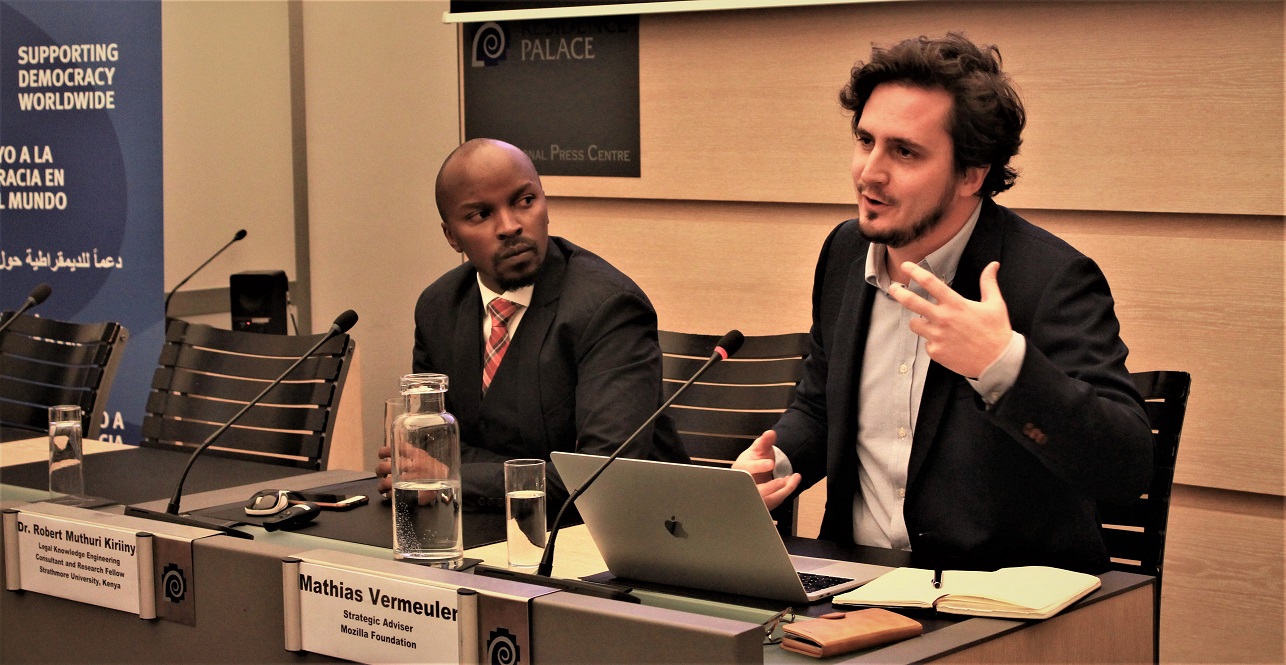
Speakers from DG DEVCO and International IDEA:
- Chiara Adamo, Head of Unit Human Rights, Gender Equality and Democratic Governance, DG DEVCO, European Commission
- Laura Bretea, Policy Officer Democratic Governance, DG DEVCO, European Commission
- Peter Wolf, Technical Services Manager, International IDEA P.Wolf@idea.int
- Sam van der Staak, Head of Europe Programme, International IDEA S.vanderStaak@idea.int
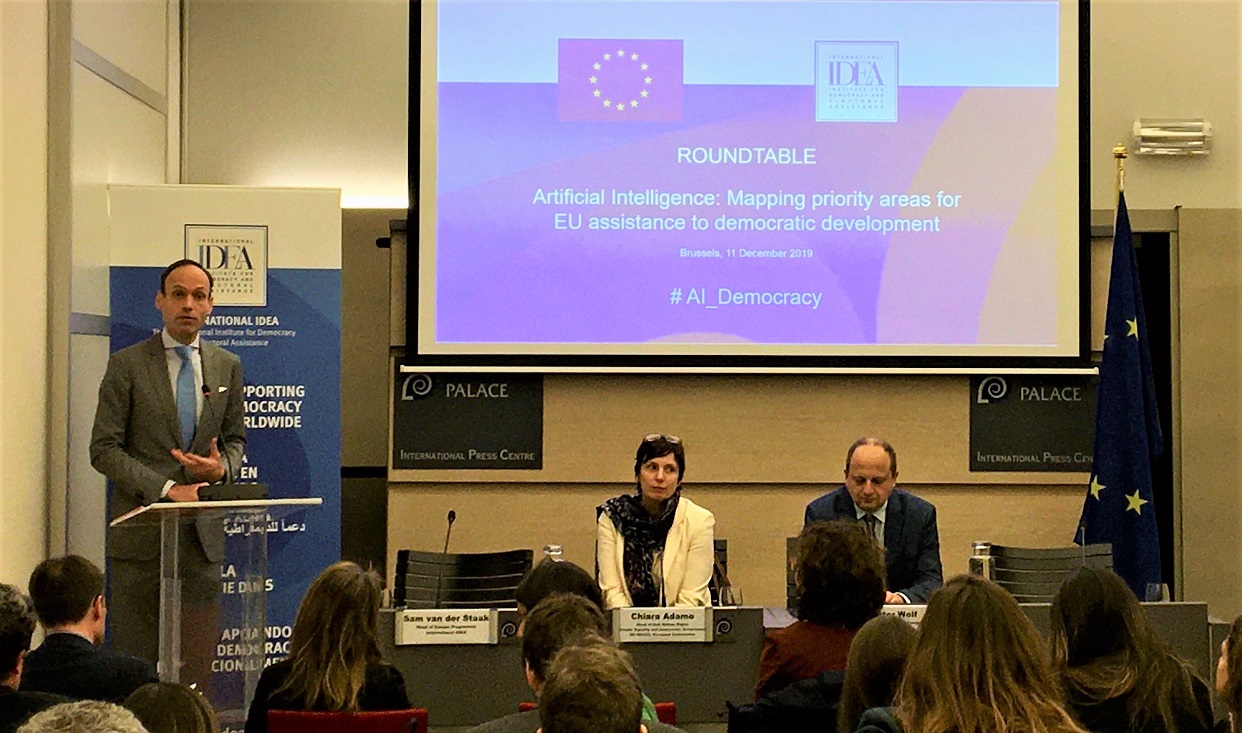
This roundtable event was organized with the financial support of the European Union.
The content of this article does not necessarily reflect the view of the European Union.




